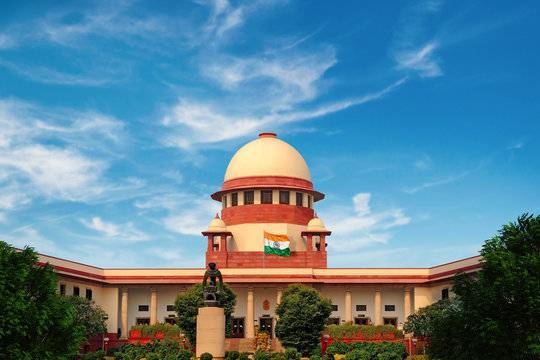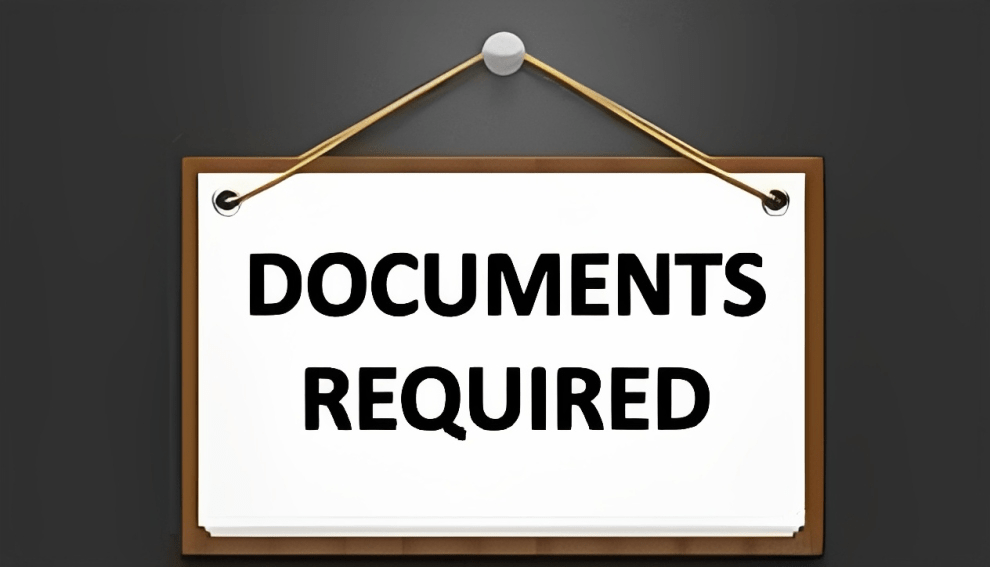
GAG LAWYERS -
GROVER & GROVER ADVOCATES

GAG LAWYERS -
GROVER & GROVER ADVOCATES

Medical negligence lawyer, Medical negligence in India is defined as a situation in which a medical professional or healthcare provider fails to provide a standard of care that a reasonable medical professional would have provided under similar circumstances. It may result in serious medical complications, injury, or even death. It is important to note that medical negligence is different from medical malpractice, which is professional misconduct or negligence that is intentional or reckless.
It is estimated that medical negligence accounts for around four per cent of all deaths in India each year. This figure is even higher in rural areas, where access to healthcare is limited and the quality of care provided by healthcare providers is often substandard. Medical negligence can be attributed to a variety of factors, including inadequate training, a lack of resources, and poor communication between patients and healthcare providers.
In recent years, there has been an increase in awareness about medical negligence among both patients and healthcare providers, but much more needs to be done to reduce its prevalence across the country.
Medical negligence is a form of medical misconduct that is defined as the “failure of a healthcare provider to use his or her skills and knowledge in an appropriate manner.” It includes but is not limited to, substandard care provided by healthcare providers due to insufficient training or a lack of resources.
Medical negligence can be attributed to a variety of factors, including inadequate training, a lack of resources, and poor communication between patients and healthcare providers. According to the WHO’s estimates from 2008–2009, “Medical negligence contributes about four per cent of all deaths in India each year. This figure is even higher in rural areas and among people with medical conditions.

Medical negligence is a serious issue in India, and it is important to be aware of the different types of medical negligence that can occur and how to identify them. Medical negligence occurs when a healthcare professional fails to provide the standard of care that they are expected to provide. It can include errors in diagnosis, treatment, and aftercare or health management. In India, medical negligence can take various forms, such as misdiagnosis, wrong medication, or surgical errors. It is important for patients and their families to be able to identify medical negligence so that they can take the necessary steps for justice.
Identifying medical negligence in India can be difficult because some doctors might not understand their mistakes or the damage that has been done. If medical negligence has occurred, the patient should take action to make sure that they are compensated for their losses. They can contact a lawyer about pursuing legal action if necessary.
1) Misdiagnosis: Misdiagnosis is when a medical professional misidentifies a patient’s condition or fails to diagnose an illness altogether. Signs of a misdiagnosis can include a delay in the diagnosis or a failure to order necessary tests.
2) Surgical Errors: Surgical errors are when a medical professional makes an error during a surgical procedure, such as leaving an instrument inside the body or performing the wrong surgery.
3) Anaesthesia Errors: Anaesthesia errors occur when an anesthesiologist administers an incorrect dose of anaesthesia or fails to monitor a patient’s vital signs during surgery.
4) Birth Injury: A birth injury occurs when a medical professional fails to properly monitor a mother and baby during labour and delivery, resulting in the baby being injured.
5) Medication Errors: Medication errors occur when a medical professional prescribes the wrong medication or an incorrect dosage of medication to a patient.
6) Laboratory Errors: Laboratory errors occur when a laboratory technician or other medical professional mishandles a patient’s sample or incorrectly interprets the results of a test.

Medical negligence cases are a serious issue in India, and the charges, penalties, and punishments associated with them can be severe. Depending on the severity of the case, doctors can face a range of penalties, including fines, jail time, suspension of their medical license, and more. In some cases, they may even be held liable for damages caused by their negligence.
It is important to understand these charges and penalties in order to protect yourself if you ever find yourself accused of medical negligence. This article will provide an overview of the charges and punishments associated with medical negligence cases in India.
1. Punishment for Medical Negligence Cases in India Medical negligence cases are considered crimes, and the penalties and punishments depend on the severity of the case.
2. The charges and penalties for medical negligence cases in India vary depending on the nature and severity of the case. In some cases, the doctor may be found guilty of negligence and be liable to pay damages to the victim.
3. In more serious cases, the doctor may be charged with criminal negligence and face imprisonment. The maximum punishment for medical negligence in India is imprisonment for up to seven years and/or a fine. In addition, the doctor may also be liable to pay damages to the victim or their family.
4. The Indian Penal Code also states that any person who causes death by negligence can be charged with culpable homicide, which carries a maximum sentence of life imprisonment. In addition, if the negligence is proven to be deliberate or intentional, the doctor can be charged with murder, which carries a maximum sentence of death.
5. In cases where medical negligence is less serious, the doctor may be liable to pay compensation to the victim or their family. The amount of damages awarded depends on the severity of the injury and the degree of negligence.

Medical negligence is a serious issue in India, and the law provides several legal remedies for the victims. These legal remedies are available under both civil and criminal laws. The victims of medical negligence can file a complaint against the doctor or hospital for compensation, damages, or other relief as per the law. The courts also have the power to impose penalties on doctors and hospitals found guilty of medical negligence. This article will discuss the various legal remedies available to victims of medical negligence in India.
In India, medical negligence falls under the purview of tort law and is covered under the Consumer Protection Act, 1986. In cases of medical negligence, the aggrieved person can take legal action against the medical practitioner or the hospital by filing a complaint in the Consumer Court. The remedies available to the complainant are as follows:
1. Refund of Medical Expenses: The complainant can claim a refund of the medical expenses incurred for the negligent treatment of the medical practitioner.
2. Compensatory Damages: The complainant can claim monetary compensation for the physical and mental harm caused by the medical negligence.
3. Punitive Damages: The complainant can also claim punitive damages from the medical practitioner or the hospital in cases where the negligence is gross and goes beyond the scope of ordinary negligence.
4. Injunctive Relief: The complainant can also seek an injunction or a restraining order to prevent the medical practitioner or the hospital from continuing the negligent treatment.
5. Declaratory Relief: The complainant can seek a declaration from the court declaring the medical practitioner or the hospital guilty of medical negligence.
6. Apology: In some cases, the court may also order the medical practitioner or the hospital to issue an apology to the complainant.

In India, medical negligence cases are handled by lawyers specializing in medical negligence cases. Medical negligence lawyers working in this area of law provide legal advice and representation to people who have been injured due to medical negligence.
Medical negligence cases are a major concern in India, and medical negligence lawyers play an important role in ensuring that victims of medical negligence get justice. Medical negligence lawyers are responsible for representing the victims in court and making sure that they receive the compensation they deserve.
Medical negligence lawyers also provide legal advice to victims, helping them understand their rights and how to pursue their claims. Furthermore, a medical negligence lawyer can help victims take action against negligent healthcare providers by filing lawsuits or initiating arbitration proceedings. In this way, a medical negligence lawyer can help ensure that medical negligence cases are addressed appropriately and fairly.
Medical negligence is a broad term that refers to any action or inaction by healthcare providers that results in harm to a patient. If the provider has been negligent and has caused injury, then the patient may be able to file a medical negligence case against them.
A medical negligence lawyer can help victims of medical negligence understand their rights and file a medical negligence case in a court of law. A medical negligence lawyer can also help victims understand the complexities of the medical negligence laws in India and navigate the legal system. Medical negligence lawyers can provide legal advice and assistance in filing a medical negligence claim.
A medical negligence lawyer can help the victim collect evidence, understand the process, and navigate the court system. Lawyers can also provide legal representation and help victims secure their rights and get compensation for their losses. Medical negligence lawyers can also provide effective representation in negotiations with doctors, healthcare providers, and insurance companies. A medical negligence lawyer can help victims get the best possible outcome from the case and also ensure that their rights are protected.

In India, filing a case related to medical negligence is a complex procedure that requires the help of a lawyer. The process involves gathering evidence, filing the case in the appropriate court, and proving that the medical negligence caused harm or injury to the patient. It is important to have an experienced lawyer on your side who can help you navigate through this process and ensure that your rights are protected.
Gathering Evidence In order to file a case related to medical negligence in India, you must gather evidence that the medical negligence caused harm or injury.
It is also important to collect any relevant information from previous complaints that have been filed against the hospital in which the incident occurred. In addition, it is necessary for you to gather any relevant information about your doctor and hospital so that these individuals are not able to hide or destroy evidence.
1. Seek medical advice: consult a qualified medical professional to obtain an opinion on the medical negligence that has occurred.
2. Research the law: Research the applicable laws and regulations regarding medical negligence.
3. Prepare the complaint: Draught a complaint outlining the facts of the case and the alleged medical negligence.
4. File the complaint: File the complaint with the appropriate court.
5. Serve the defendant: Serve the defendant with the complaint.
6. Respond to the complaint: The defendant must respond to the complaint within a certain period of time.
7. Discovery: Each party can request information and documents from the other party to support their case.
8. Settlement negotiations: The parties may attempt to negotiate a settlement to avoid a trial.
9. Trial: If the parties are unable to settle, the case proceeds to trial.
10. Judgement: The court will issue its judgement in the case.

Filing a case related to medical negligence in India requires certain documents. These documents are essential for proving the negligence of the medical practitioner or hospital. They include medical records, prescriptions, discharge summaries, bills, and other relevant documents. Additionally, if there is any witness to the incident or any evidence of negligence, those should also be included in the filing process.
It is important to collect all these documents before filing a case, as they will help in establishing liability and providing evidence for your claim. It is also important to consult with an experienced lawyer who can guide you through the process of filing a case related to medical negligence.
1. Medical reports of the patient.
2. Negligence complaint filed with the concerned hospital or medical practitioner.
3. Copies of any documents related to the incident like bills, discharge summary etc.
4. Report of the medical council which has conducted the inquiry into the matter.
5. Complaint to the state or central health ministry or consumer forum.
6. Copies of the evidence collected by the consumer forum or state health ministry.
7. Affidavit of the patient or his family members.
8. Copies of any legal notices served.
9. Documents evidencing any damages caused due to the negligence.

Grover & Grover, advocates, and solicitors can help victims of medical negligence in a variety of ways. First, they can evaluate the case to determine whether or not the medical negligence is actionable and whether the victim has a good chance of receiving a positive outcome.
If the case merits further action, the lawyers will then collect all relevant evidence, such as medical records, witness statements, and expert opinions. They also have the ability to negotiate on the victim’s behalf to reach a settlement out of court. If the case goes to trial, they can present the victim’s case in court and argue for a favourable outcome. Lastly, they can provide advice and support throughout the entire legal process.
Grover & Grover, Advocates and Solicitors, is a leading law firm in India that specialises in medical negligence cases. They provide legal representation to patients who have suffered from medical negligence and help them get the compensation they deserve.
The firm has a team of experienced lawyers who are well-versed in medical negligence laws in India. They understand the complexities of such cases and can provide the best legal advice to their clients. They also have access to the latest research on medical negligence laws and regulations, which helps them stay up-to-date with changes in the law.
Grover & Grover, advocates and solicitors, have an impressive track record of success when it comes to helping victims of medical negligence get justice. Their team is dedicated to providing quality service and ensuring that their clients receive fair compensation for their suffering due to medical malpractice or negligence.

In India, the Supreme Court and High Courts have been involved in some of the most important medical negligence cases in recent years. These cases have had a major impact on the medical profession and set legal precedents for future cases. This article will discuss some of the most popular cases of medical negligence related to the Supreme Court and High Courts in India. It will also explore how these decisions have shaped the laws governing medical negligence and their implications for healthcare professionals.
1. K. Maheshwari v. Union of India & Ors., (2016) 4 SCC 439: This case was related to medical negligence, and the Supreme Court held that the deficiency in services was negligent and the doctor’s negligent care was the cause of the patient’s death.
2. Jacob Mathew v. State of Punjab & Anr., (2005) 6 SCC 1: In this case, the Supreme Court held that the medical negligence and deficiency in service were proved, and the patient’s death was due to medical negligence.
3. Rashmi Rekha Baruah v. State of Assam & Ors., (2003) 4 SCC 321: This case was related to medical negligence, and the High Court of Assam held that the patient’s death was due to medical negligence and the doctor was liable for damages.
4. State of Gujarat v. Rameshbhai, (2014) 5 SCC 294: This case was related to medical negligence, and the High Court of Gujarat held that the doctor was negligent and the patient’s death was due to the doctor’s negligence.